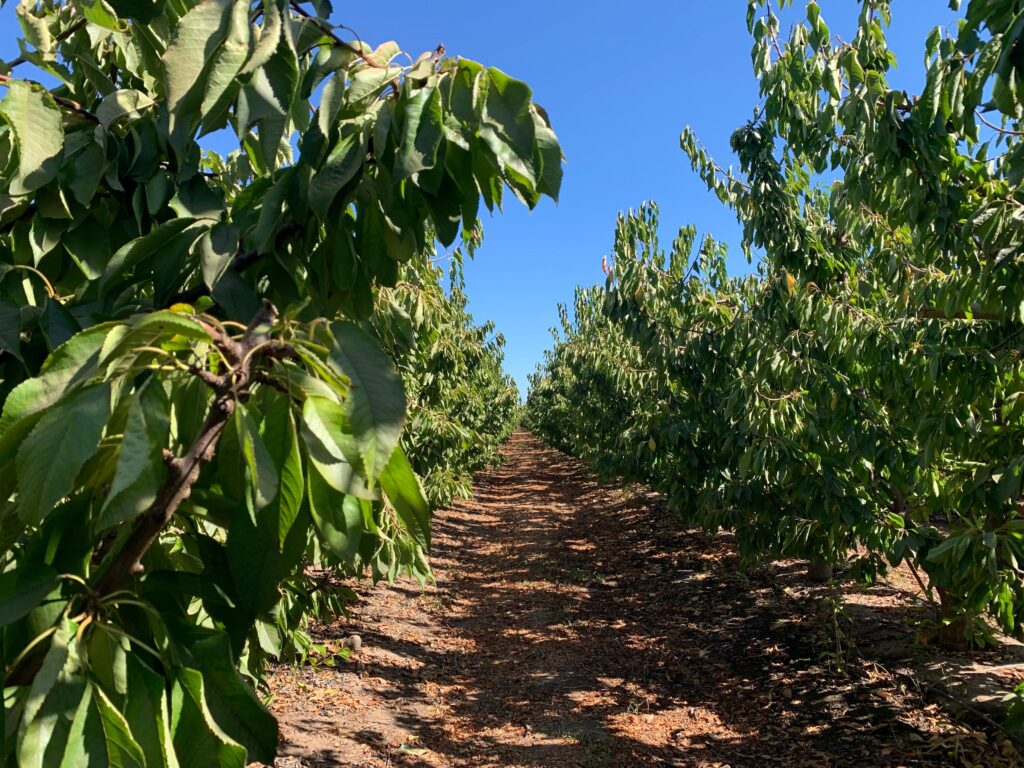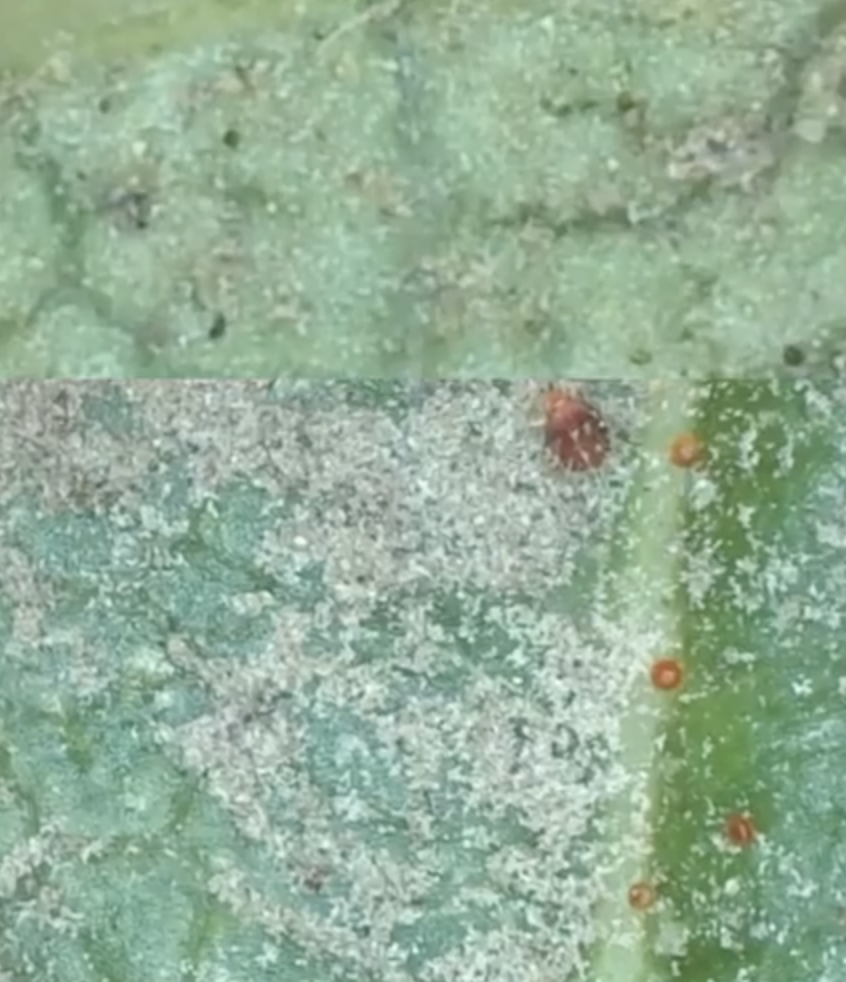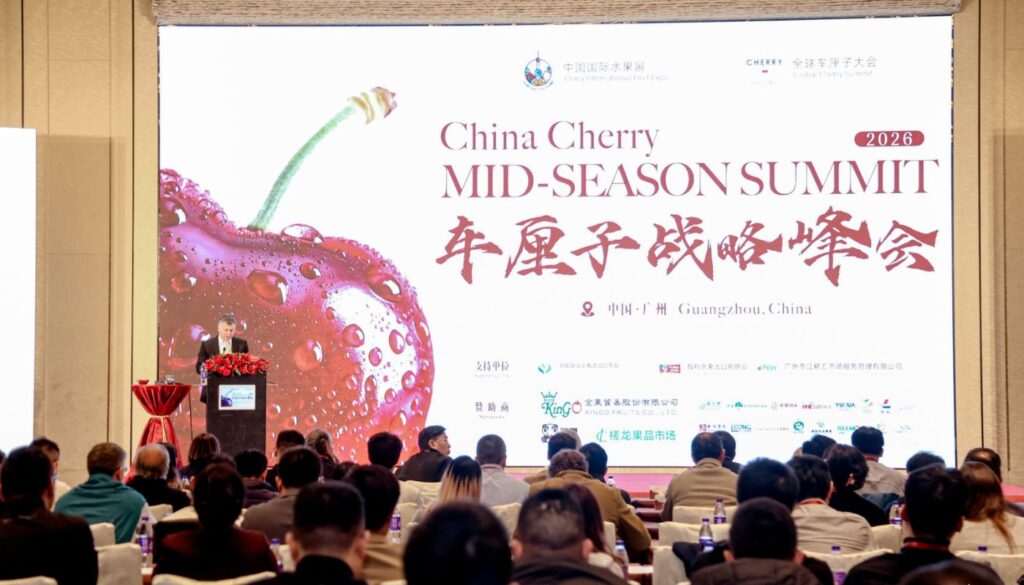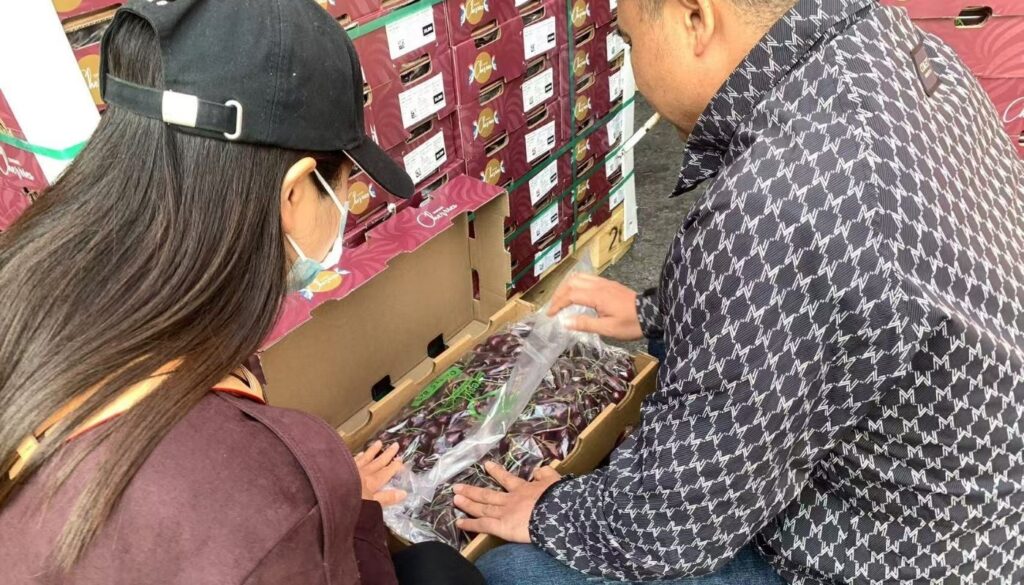The cherry tree in Chile has several pests, among which we find the San Jose scale, the purple scale, the vine burrito, the California thrips, the spotted-wing fly (Drosophila suzukii), and the two-spotted spider (Tetranychus urticae), which has gained relevance in recent years.
This mite can be very aggressive due to its fast and short development cycle. It is estimated that it can complete 12 generations in one season. It feeds on the leaves, causing a characteristic chlorotic mottling, browning, defoliation, and weakening of the plants, which will undoubtedly affect the accumulation of reserves for the following season.
To control the two-spotted spider mite, it is essential to monitor it and its natural enemy, Neoseiulus californicus, a task that must be carried out from December, the month in which this little spider climbs into the trees from the undergrowth.

If the presence of the two-spotted spider mite and, above all, the prey/predator relationship justifies it, effective acaricides such as Spirodiclofen 240 EC and Bifenthrin 100 EC should be applied. The latter, in the case of export cherries destined for markets with restrictions on this active ingredient, is only recommended for post-harvest application.
Evaluation of acaricides
Below we present the results of a study carried out by the Fruit Entomology Laboratory of the University of Chile, with the aim of evaluating the effectiveness of Spirodiclofen 240 SC and Bifenthrin 100 EC in the control of the two-spotted spider mite (Tetranychus urticae (Koch)), in cherry trees.


-Application with a motor sprayer, and with a wetting equivalent to 1,500 L/ha.
-Randomized complete block design, 4 replications. Experimental unit: 3 plants from which a sample of 20 leaves was collected.
-Analysis with a mixed generalized linear model, data fitted to a negative binomial curve. Separation of means using the DGC test.
This study was carried out during the months of January and February 2021, in a 3-year-old Santina cherry orchard, located in the commune of Malloa, O'Higgins Region, which was under high pressure from this pest.
The results (Table 2) show that Spirodiclofen 240 SC and Bifenthrin 100 EC effectively control the two-spotted spider mite in cherry trees and their effect is similar to the commercial standard, with Bifenthrin 100 EC standing out due to the rapidity of the population decrease, showing statistically superior results after 7 days to the other acaricides studied.
Bifentrin 100 EC, in addition to being an excellent acaricide, is an insecticide that simultaneously controls other pests of interest in cherry trees and other fruit trees.








